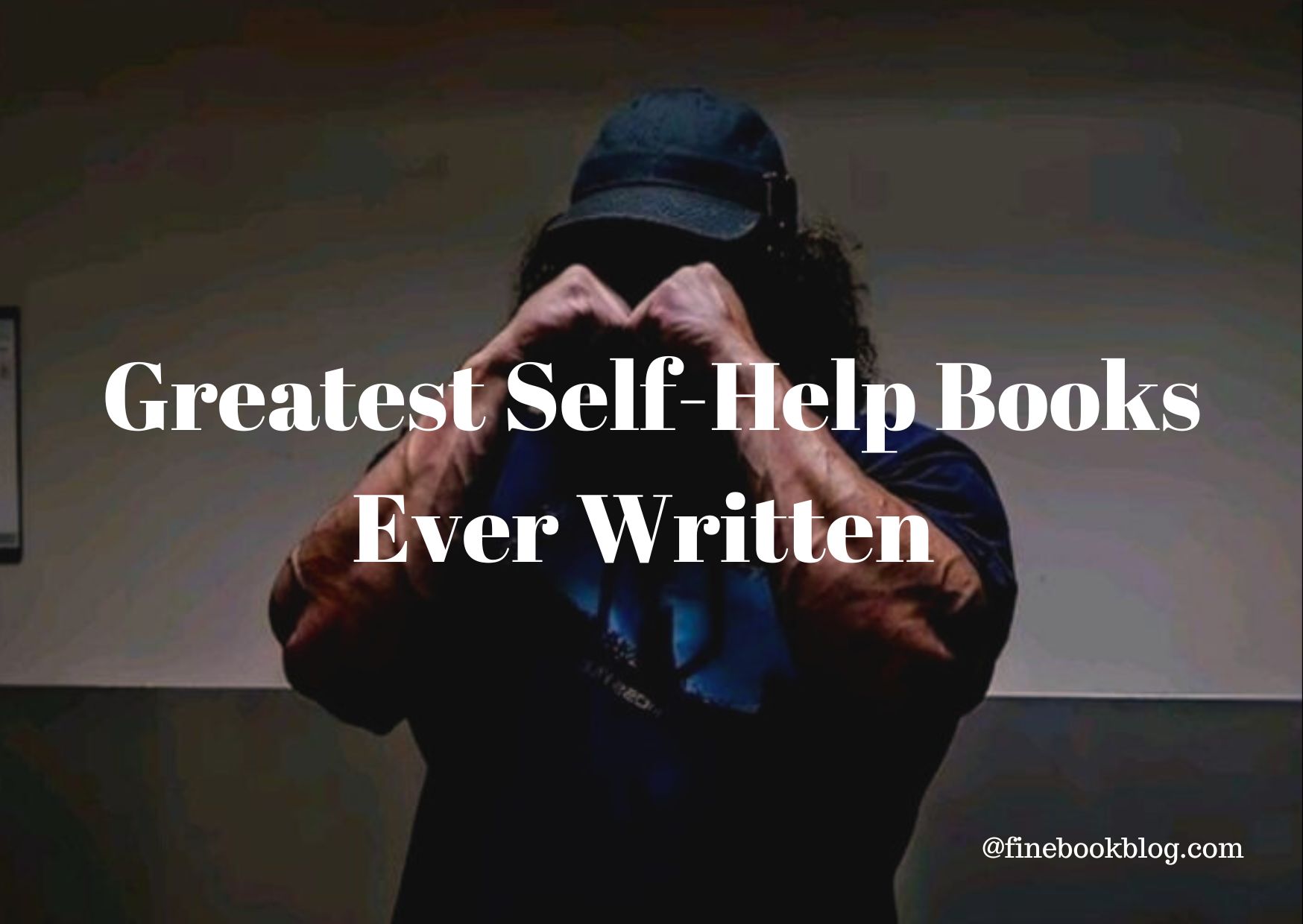When it comes to self-help books, there’s certainly no shortage of options to choose from. But amidst the sea of self-help books promising to transform your life, relationships, and bank account, which ones truly stand out as the greatest of all time? In this article, we’ll take a closer look at some of the most influential and impactful self-help books ever written.
How to select a perfect Self-Help Book for yourself?
Here are 6 points to consider before selecting a perfect self-help book for yourself.
- Know your goals: Before selecting a self-help book, identify what you want to achieve. Do you want to improve your relationships, advance your career, or enhance your personal growth? Choose a book that aligns with your objectives.
- Assess your learning style: Consider how you absorb information best. Do you prefer a conversational tone, a structured program, or a combination of both? Select a book that caters to your learning style.
- Evaluate the author’s credibility: Ensure the author is qualified to provide guidance in the area they’re writing about. Check their background, experience, and reputation. A credible author increases the likelihood of a helpful and accurate book.
- Reviews matter: Read reviews from diverse sources, such as Goodreads, Amazon, or blogs. Take note of both positive and negative feedback to determine if the book resonates with readers.
- Preview the content: Skim through the table of contents, introduction, and a random chapter. Get a feel for the writing style, tone, and depth of information. This preview will help you decide if the book is engaging and suitable for your needs.
- Follow your gut: Ultimately, trust your instincts. If a book feels right for you, even if it doesn’t tick every box on your list, give it a shot. You may be surprised by how much you enjoy and benefit from it.
5 Greatest Self-Help Books That Are Timeless
Atomic Habits by James Clear
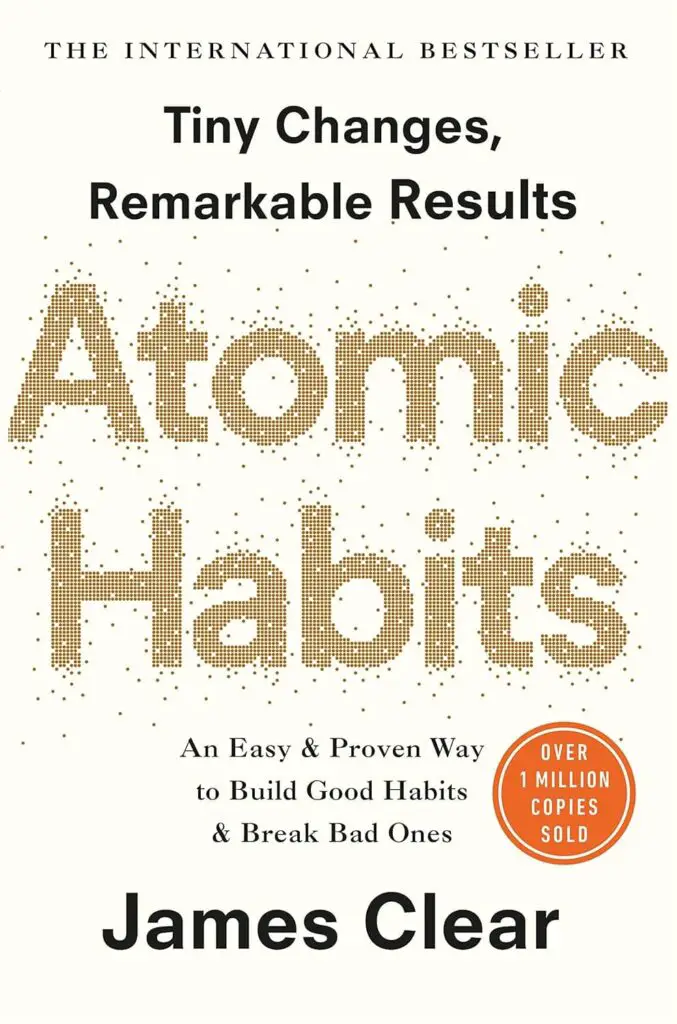
“Atomic Habits” by James Clear offers a comprehensive guide to creating lasting change in your life. The book introduces the concept of “atomic habits,” which are small, incremental changes that can lead to significant improvements in areas such as productivity, health, and happiness. Clear provides actionable strategies for building good habits and breaking bad ones, along with real-life examples and scientific research to support his claims.
This self-help book will transform your thinking about success and suggest actionable strategies for lasting change.
Key Learnings from Self-Help Book “Atomic Habits”
- Small changes can lead to big results:
- Atomic habits are small, incremental changes that can lead to significant improvements in areas such as productivity, health, and happiness.
- Small changes are easier to implement and maintain than large, drastic changes.
- Consistency is key to making small changes stick and adding up to big results over time.
- Habit stacking is powerful:
- Habit stacking involves layering multiple small habits on top of each other to create a more significant change.
- Stacking habits create a snowball effect where small changes accumulate and multiply, leading to bigger and more meaningful improvements.
- Examples of habit stacking include combining small changes in exercise routine, nutrition, and productivity to create a larger impact.
7 Habits of Highly Effective People by Stephen R. Covey
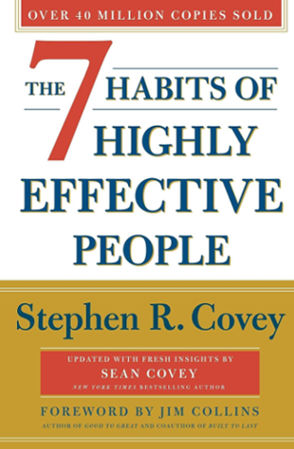
This book is a pioneering work in the self-help genre, offering practical advice and strategies for personal and professional development. Covey’s 7 habits provide a framework for living a fulfilling and successful life, focusing on principles such as being proactive, beginning with the end in mind, and synergizing. With concrete examples and exercises, this book helps readers develop the skills and mindset necessary for achieving their goals and becoming highly effective in all aspects of their lives.
Key Learnings from “7 Habits of Highly Effective People”
- Habit 1: Be Proactive
- Take responsibility for your own life and choices.
- Practice self-awareness and self-management.
- Focus on things you can control, not things you can’t.
- Cultivate a mindset of abundance and possibility.
- Habit 2: Begin with the End in Mind
- Set clear, measurable goals based on your values and principles.
- Prioritize tasks and activities that align with your goals.
- Use a Personal Mission Statement to guide decision-making.
- Habit 3: Put First Things First
- Prioritize tasks based on their urgency and importance.
- Manage time effectively using tools like the Eisenhower Matrix.
- Delegate tasks and responsibilities effectively.
- Habit 4: Think Win-Win
- Seek mutually beneficial solutions that satisfy all parties.
- Build strong relationships based on trust, respect, and collaboration.
- Avoid compromising or sacrificing one’s own interests.
- Habit 5: Seek First to Understand, Then to be Understood
- Listen actively and empathetically to others.
- Seek to understand others’ perspectives and needs.
- Communicate openly and honestly.
- Synergize (combine) strengths and ideas to achieve better results.
- Habit 6: Synergize
- Combine the strengths and resources of individuals to achieve better results.
- Value diversity and inclusivity in teams and collaborations.
- Leverage technology and tools to enhance collaboration.
- Habit 7: Sharpen the Saw
- Practice self-care and renewal to maintain physical, mental, social, and spiritual well-being.
- Engage in continuous learning and personal growth.
- Reflect regularly on personal progress and set new goals.
Power Of Now by Eckhart Tolle
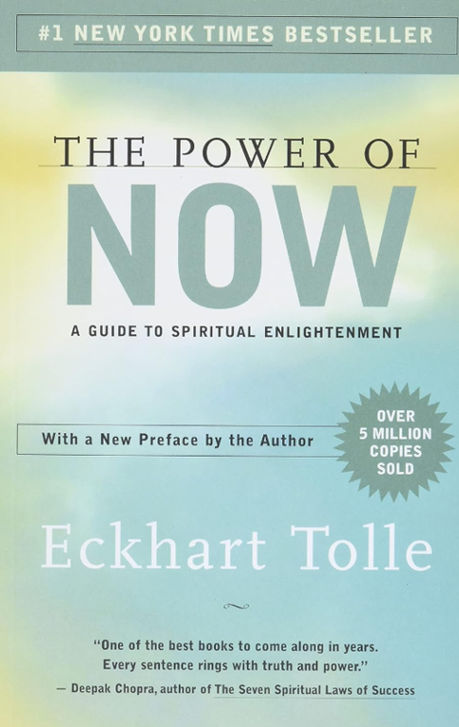
In this spiritual self-help classic, Eckhart Tolle teaches readers how to live in the present moment and find inner peace. Drawing on Buddhist and Taoist philosophies, Tolle argues that our struggles with anxiety, depression, and unhappiness stem from our tendency to dwell on the past or worry about the future. Instead, he suggests that we can find freedom and joy by embracing the present moment and letting go of our ego-driven thoughts. Through practical exercises and inspiring stories, Tolle shows us how to cultivate mindfulness, acceptance, and compassion, and how to use the power of now to transform our lives.
Core Learnings from “Power of Now”
- The primary cause of unhappiness is the thought patterns in our minds.
- Living in the present moment is the key to happiness and fulfillment.
- The ego or our false sense of self is an illusion.
Man’s Search For Meaning by Viktor E. Frankl
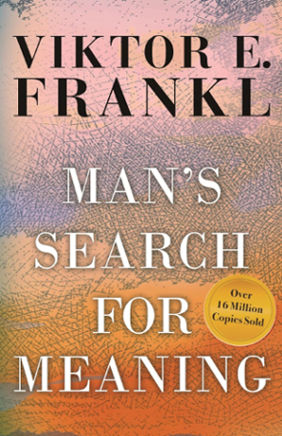
In this memoir, Holocaust survivor and psychiatrist Viktor Frankl recounts his experiences in Nazi concentration camps during World War II. Frankl reflects on the psychological and philosophical insights he gained from his experiences, including the importance of finding meaning and purpose in life, even in the face of unimaginable suffering.
He also introduces the concept of logotherapy, a form of therapy that focuses on helping patients find meaning in their lives. This book has had a significant impact on the fields of psychology and philosophy and continues to inspire readers to find meaning and purpose in their own lives.
Key Teachings of “Man’s Search For Meaning”
- Meaning can be found in adversity: Frankl discovered that even in the harshest conditions, such as concentration camps, people could still find meaning and purpose in their lives. This challenges the conventional notion that happiness and fulfillment come from external circumstances.
- Purpose is essential for resilience: Frankl observed that prisoners who had a sense of purpose, such as a goal to survive for their loved ones, were more likely to survive the camp. This highlights the importance of having a clear purpose in life, even in the face of adversity.
When Things Fall Apart by Pema Chödrön
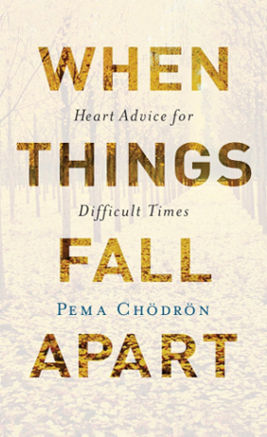
In this famous self-help book, Pema Chödrön offers guidance on how to navigate life’s challenges with grace and compassion. Drawing on her own experiences as a Tibetan Buddhist nun, Chödrön shares practical advice on topics such as meditation, mindfulness, and dealing with difficult emotions. Her writing is both accessible and profound, making this book a valuable resource for anyone seeking spiritual growth and self-improvement.
Core Values from the book “When Things Fall Apart”
- Life is uncertain and impermanent: Chödrön emphasizes the importance of accepting and embracing the uncertainty and impermanence of life. She encourages readers to cultivate a sense of groundlessness, which involves being open to change and unknown outcomes.
- We can choose how we respond to difficulties: Chödrön stresses that while we cannot control what happens to us, we can choose how we respond to difficulties. She advocates for practicing mindfulness and compassion towards oneself and others, even in the face of adversity.
Why these are the greatest self-help books ever written?
These books are the greatest self-help picks because they provide timeless wisdom, practical advice, and powerful insights that have helped many improve their lives and achieve their goals. They are like roadmaps for personal growth and development, providing step-by-step guidance on how to overcome obstacles, build positive habits, and create lasting change.
These books have been widely read, discussed, and shared, inspiring millions to make positive changes. Many have been endorsed by experts in the field, and some have even become classics, required reading for self-improvement.

